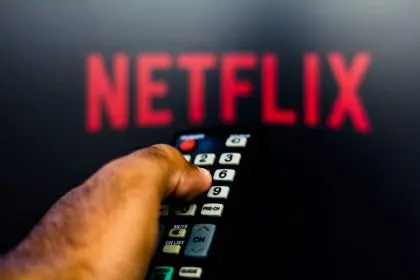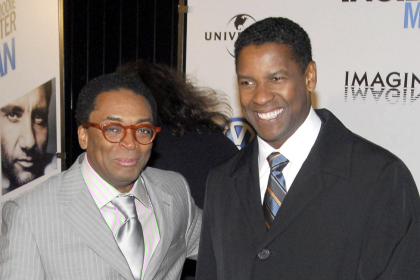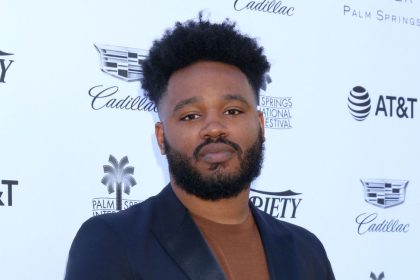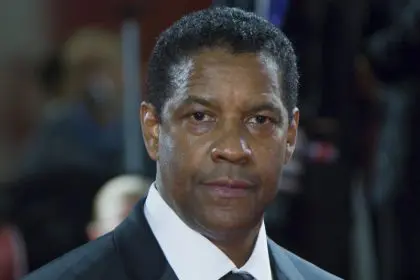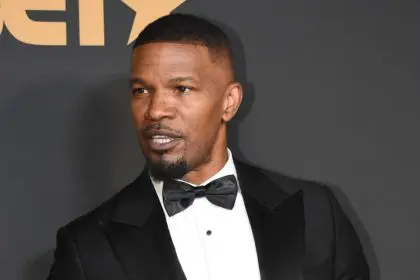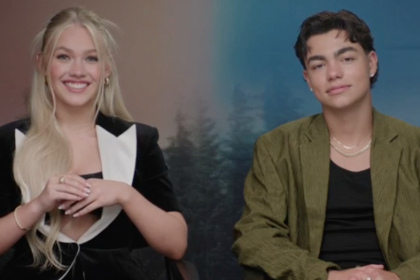
When the great playwright August Wilson died of liver cancer in 2005, few had reason to believe that Fences, his most celebrated work about Troy Maxson, a middle-aged husband, father and one-time Negro Leagues star fighting through life in the 1950s, would ever hit the big screen. But it is finally here, with Denzel Washington and Viola Davis reprising their Tony-winning roles as Troy and his wife Rose which rocked Broadway in 2010. Russell Hornsby, Mykelti Williamson and Stephen McKinley Henderson, who were also in that Broadway production, are in the film too. Jovan Adepo, who plays Troy’s 17-year-old son Cory, with whom he has a tense relationship, is the only newcomer. Fences, which Washington directs, is actually his feature film debut.
“It was an incredible blessing,” says the actor some may recognize from HBO’s “The Leftovers” as the son to Regina King’s Erika Murphy. “Getting the opportunity to be around these people and to learn so much from everybody are gems that I can take with me as I move forward in my career.”
As blessed an opportunity as it is, Adepo does admit that it was a “nerve-wracking” experience but one that has come at the right time in his career. During the Fences promotional run in Atlanta with Denzel Washington, Williamson and Henderson, which included a conversation at Morehouse College and a red carpet turn for a screening for the Boys & Girls Clubs of America, for which Washington is a longtime spokesperson, Adepo says he heard one of his fellow Fences cast members say “when the student is ready, the teacher appears” and it hit home.
“I took that to heart because Denzel is one of my heroes and I wanted to approach this opportunity with respect because of who else was involved, all of the cast members who had done the play and I wanted to make, basically, my first feature film debut a memorable one,” he says.
And he does. Cory is the exact opposite of his father Troy. Whereas Troy has soured on the world largely due to the bitterness of racism, Cory is full of optimism. He sees what can be while Troy sees what always has been and so the two clash. But that clashing is probably inevitable regardless of era, Adepo suggests.
“I think every young man in life is desperately trying to find his place in the world, a young Black man trying to find his place in this grand world and trying to fit where he can best,” he says of Cory while seated next to Henderson in a small area of a sizable ballroom at Atlanta’s St. Regis hotel.
“Cory definitely didn’t understand that what Troy was giving him was all that he got and the best of what he had,” he explains. “Troy did the best that he could with what he was taught and with what he was provided. It’s something you hope that Cory is beginning to understand and accepts towards the end of the story and, hopefully, that’s the first step of many steps of him healing and completely maturing.”
Bono, Henderson’s character, has a very different relationship with Troy. Actually, through Bono, we probably see Troy at his best, as a cherished friend. Black men’s friendships don’t always come across on screen as intense as they typically are but Fences is a great exception. “It’s a wonderful thing,” says Henderson. “That’s the depth of friendship. I know people that mean that much to me. We don’t say it all the time. As I got older, I do say it because I’ve lost friends. … You are very, very fortunate to have somebody like that.”
Henderson and August Wilson were actually longtime friends and Henderson was elated to finally see his friend’s dream make it to the big screen. “It’s wonderful to see someone you love get what they wanted,” he says. “I know he would really love that it happened and that it happened in the way that it did.”
One of the reasons Fences didn’t get made until now is that Wilson insisted that the film have a Black director and wouldn’t waver from that. That, that director turned out to be Washington is a bonus. Wilson actually penned the script and Washington largely didn’t stray from that, even though starring in Fences and directing it was no easy feat.
And though it has taken Fences nearly 20 years to hit the big screen, Henderson says it’s still right on time. “There will never be a day when [Fences] wasn’t relevant because it’s about the human condition and nothing human is foreign to you,” he says. “[I]t’s not just about African American life but, the more specifically it is about our life, the more it speaks to everybody.”

